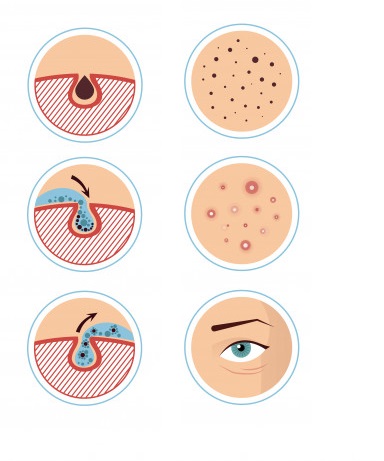
Getting to Know Skin Health: Functions, Disorders, and Care
Our skin, the body’s largest organ, serves as a multifunctional barrier that protects, regulates, and communicates with the environment. Understanding its functions, recognizing common skin disorders, and adopting proper skincare practices are essential for maintaining optimal skin health. This comprehensive guide explores the various aspects of skin health, from its functions to identifying skin disorders and effective care techniques.
Understanding the Functions of Skin:
The skin plays several critical roles in maintaining overall health:
- Barrier Protection: Skin acts as a shield against external threats, including bacteria, viruses, and harmful environmental elements.
- Thermoregulation: It helps regulate body temperature by sweating and conserving heat.
- Sensory Perception: Nerve endings in the skin allow us to feel sensations such as touch, heat, cold, and pain.
- Vitamin D Synthesis: Sunlight exposure on the skin helps the body produce vitamin D, vital for bone health and other functions.
- Excretion and Absorption: Skin excretes waste products and absorbs substances like medications and nutrients.
Identifying Common Skin Disorders:
A range of factors can lead to skin disorders, resulting in various symptoms:
- Acne: Caused by clogged hair follicles, leading to pimples, blackheads, and whiteheads.
- Eczema (Atopic Dermatitis): Characterized by red, itchy, and inflamed skin patches.
- Psoriasis: Presents as red, scaly patches of skin that can be painful and itchy.
- Rosacea: Causes redness and visible blood vessels on the face, often accompanied by swelling.
- Athlete’s Foot: A fungal infection that affects the feet, leading to itching, burning, and peeling skin.
- Cold Sores: Caused by the herpes simplex virus, resulting in painful, fluid-filled blisters on or around the lips.
Essential Skincare Practices:
Maintaining healthy skin involves adopting effective skincare routines:
- Sun Protection: Use broad-spectrum sunscreen, wear protective clothing, and seek shade to prevent sun damage.
- Hydration: Drink enough water to keep skin moisturized from within.
- Gentle Cleansing: Use mild cleansers to avoid stripping the skin of natural oils.
- Moisturization: Apply suitable moisturizers to keep the skin hydrated and supple.
- Balanced Diet: Consume a diet rich in vitamins, minerals, and antioxidants to support skin health.
- Stress Management: Stress can exacerbate skin conditions, so practice relaxation techniques.
Treatment and Management:
For addressing skin disorders:
- Consult a Dermatologist: Seek professional advice to diagnose and treat skin conditions effectively.
- Prescription Medications: Dermatologists may prescribe topical or oral medications for severe skin disorders.
- Lifestyle Modifications: Identify triggers (like allergens) and make necessary adjustments.
- Avoid Harsh Products: Choose skincare products suited to your skin type and conditions.
Conclusion:
Understanding the multifaceted role of skin, recognizing common disorders, and adopting effective skincare practices are fundamental for maintaining healthy skin. By prioritizing skin health, we can enjoy the benefits of protection, regulation, and sensory perception that this remarkable organ provides.